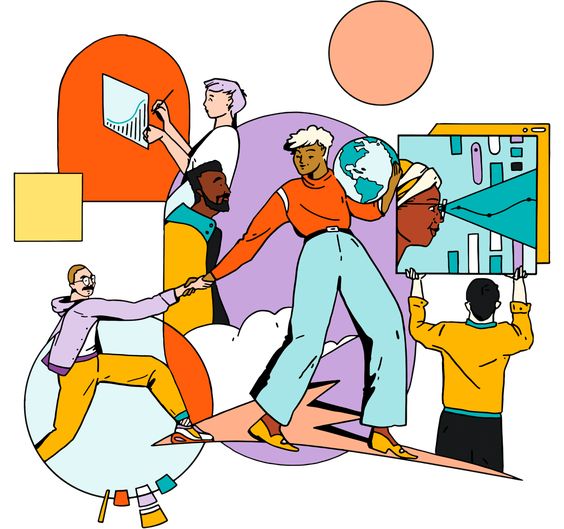What is a Domestic Dispute
Domestic disputes, also known as domestic violence or intimate partner violence, encompass a range of abusive behaviors that occur within personal relationships. These disputes can have profound and long-lasting effects on individuals and families, making it crucial to address them effectively. In this article, we delve into the various aspects of domestic disputes, including their types, causes, effects, and preventive measures.
Types of Domestic Disputes
Domestic disputes can manifest in different forms, including physical violence, emotional abuse, financial disputes, and custody battles. Physical violence involves acts such as hitting, kicking, or threats of physical harm. Emotional abuse encompasses behaviors like manipulation, humiliation, and controlling behavior. Financial disputes may arise over money management or economic control within the relationship, while custody battles often occur during or after separation or divorce. Also, read about What is domestic assault
Causes of Domestic Disputes
Several factors contribute to the occurrence of domestic disputes. These may include lack of communication, financial strain, substance abuse, and underlying mental health issues. Poor communication can lead to misunderstandings and unresolved conflicts, while financial strain may exacerbate tension within the relationship. Substance abuse, including alcohol or drug addiction, can also fuel aggressive behavior, as can untreated mental health conditions such as depression or anxiety.
Signs and Symptoms of Domestic Disputes
Recognizing the signs of domestic disputes is essential for early intervention and support. Physical injuries, such as bruises, cuts, or broken bones, may be visible indicators of abuse. However, emotional distress, such as anxiety, depression, or low self-esteem, can also signal an abusive relationship. Victims may exhibit behaviors like withdrawal from social activities or fearfulness around their partner. Discover more about What is genocide day

Effects of Domestic Disputes
The effects of domestic disputes extend beyond the immediate physical harm. Victims may experience long-term psychological trauma, including post-traumatic stress disorder (PTSD) and depression. Children exposed to domestic violence are at risk of behavioral problems, academic difficulties, and perpetuating the cycle of violence in their relationships. Moreover, victims may face social stigma and isolation, further complicating their ability to seek help.
Legal Protection and Support
Legal measures, such as obtaining a restraining order, can provide victims with immediate protection from further harm. Domestic violence shelters offer temporary housing and support services for individuals fleeing abusive situations. Counseling and therapy can help survivors heal from the trauma of domestic disputes and regain a sense of control over their lives.
Prevention of Domestic Disputes
Preventing domestic disputes requires a multifaceted approach that addresses underlying issues and promotes healthy relationships. Effective communication, conflict resolution skills, and financial management strategies can help couples navigate challenges constructively. Encouraging help-seeking behaviors and providing access to support services are also crucial in preventing escalation of conflicts.
Supporting Victims of Domestic Disputes
Supporting victims of domestic disputes involves providing them with emotional support, validation, and resources to regain autonomy and safety. Encouraging them to seek legal assistance and connecting them with community resources can empower them to break free from abusive relationships. Creating safe spaces where victims feel heard and believed is essential in fostering a supportive environment.
Community Resources and Assistance
Communities play a vital role in addressing domestic disputes by providing accessible resources and assistance to those in need. Hotlines for domestic violence offer immediate support and guidance to individuals experiencing abuse. Support groups offer peer support and solidarity, while legal aid services ensure that survivors have access to justice and protection.
Role of Law Enforcement
Law enforcement agencies play a critical role in responding to domestic disputes and ensuring the safety of victims. Training officers in trauma-informed approaches and cultural sensitivity can improve their effectiveness in handling domestic violence cases. Collaboration with community organizations and social services is essential in providing comprehensive support to survivors.
Education and Awareness
Educating the public about domestic disputes and raising awareness of available resources are essential in preventing and addressing abuse. Promoting healthy relationship behaviors and challenging harmful stereotypes can help create a culture of respect and equality. By breaking the silence surrounding domestic violence, we can empower survivors to seek help and hold perpetrators accountable.

Cultural Perspectives on Domestic Disputes
Cultural norms and beliefs influence perceptions and responses to domestic disputes. Addressing cultural barriers to seeking help, such as stigma or shame, requires culturally sensitive approaches. Recognizing diverse experiences and perspectives is crucial in tailoring support services to meet the needs of all individuals, regardless of cultural background.
Global Perspectives on Domestic Disputes
Domestic disputes are a global issue that requires coordinated efforts at the local, national, and international levels. While approaches may vary across countries and cultures, the underlying goal remains the same: to end violence and abuse within intimate relationships. International organizations play a crucial role in advocating for policy changes, providing funding for support services, and sharing best practices.
Media Influence on Domestic Disputes
The media plays a significant role in shaping public perceptions and attitudes toward domestic disputes. Portrayals of domestic violence in movies, television shows, and news coverage can either perpetuate harmful stereotypes or challenge them. By promoting accurate and empathetic representations of survivors and perpetrators, the media can contribute to greater awareness and understanding of domestic disputes.
Conclusion
Domestic disputes pose a significant threat to individuals’ safety, well-being, and human rights. By understanding the complexities of domestic violence and addressing its root causes, we can work toward creating safer communities for everyone. It is essential to support victims, hold perpetrators accountable, and promote healthy relationships built on respect, equality, and compassion.
FAQs
What should I do if I suspect someone is experiencing domestic abuse?
If you suspect someone is experiencing domestic abuse, it’s essential to approach the situation with sensitivity and empathy. Listen to their concerns without judgment and offer support. Encourage them to seek help from local resources such as hotlines or shelters.
Are domestic disputes only physical in nature?
No, domestic disputes can take various forms, including physical violence, emotional abuse, financial control, and sexual coercion. It’s essential to recognize the different manifestations of abuse and provide support accordingly.
How can I help a friend or family member who is in an abusive relationship?
Supporting a loved one in an abusive relationship can be challenging, but it’s crucial to offer non-judgmental support and validation. Encourage them to prioritize their safety and explore available resources for assistance.
What are some warning signs of an abusive relationship?
Warning signs of an abusive relationship may include controlling behavior, jealousy, isolation from friends and family, frequent arguments, and physical violence. Trust your instincts and seek help if you feel unsafe.
Where can I find additional resources and support for domestic disputes?
There are many resources available for individuals experiencing domestic disputes, including hotlines, shelters, counseling services, and legal aid organizations. You can also reach out to local law enforcement or community organizations for assistance.
